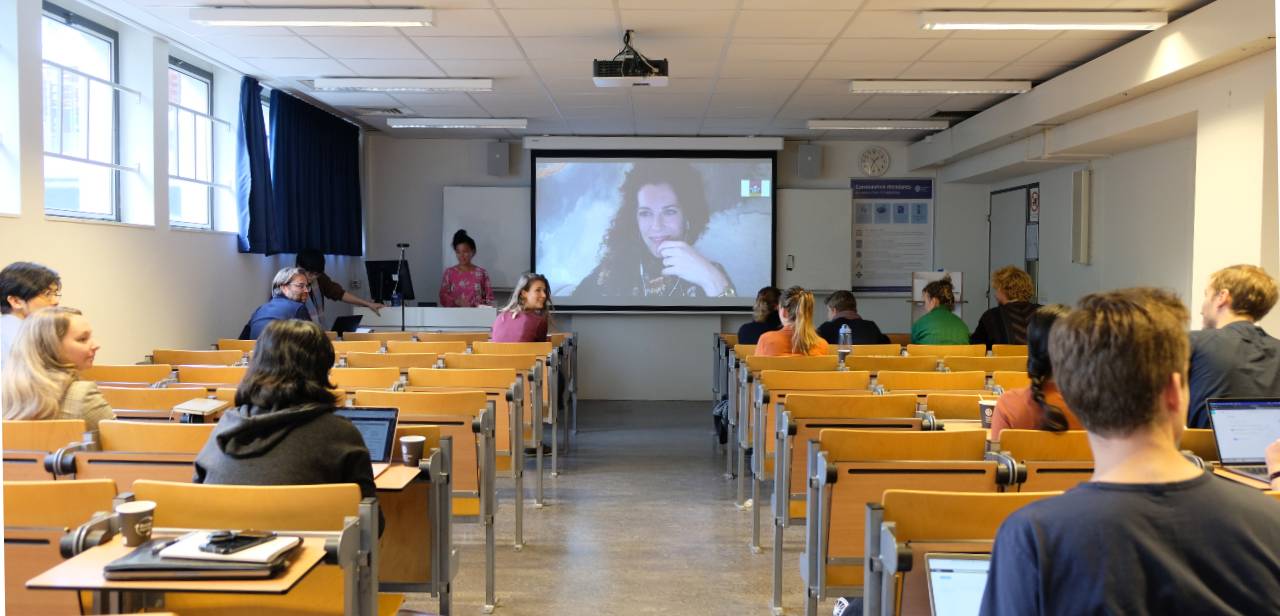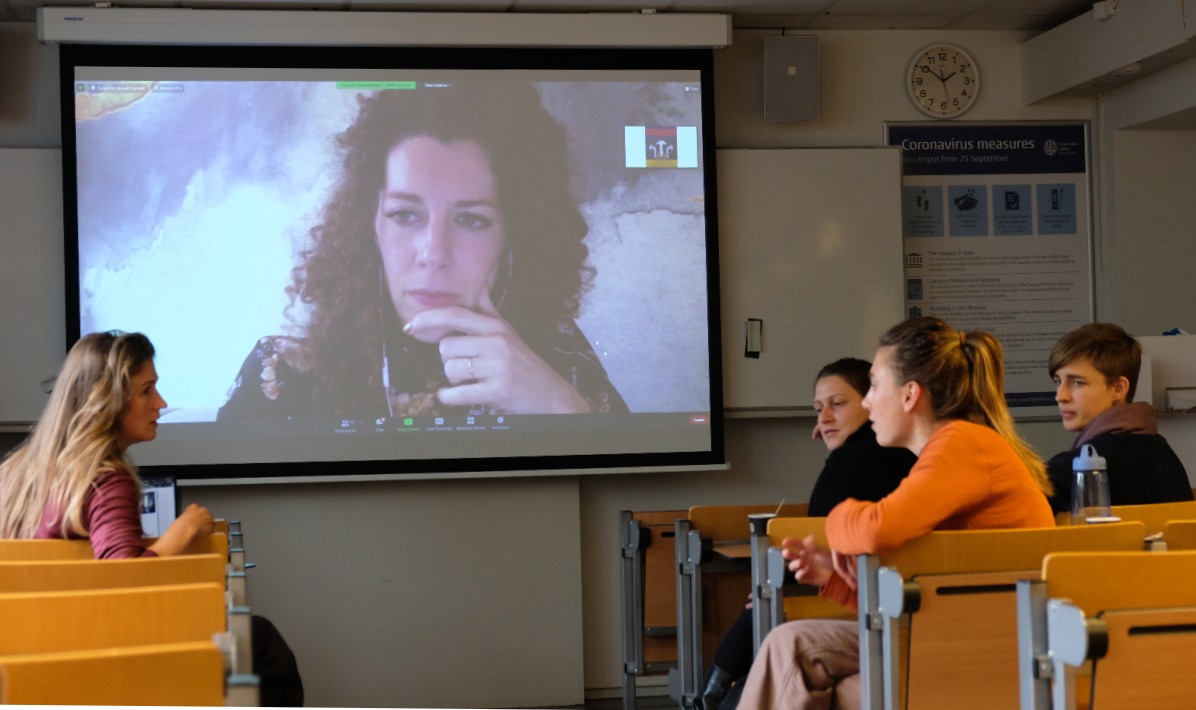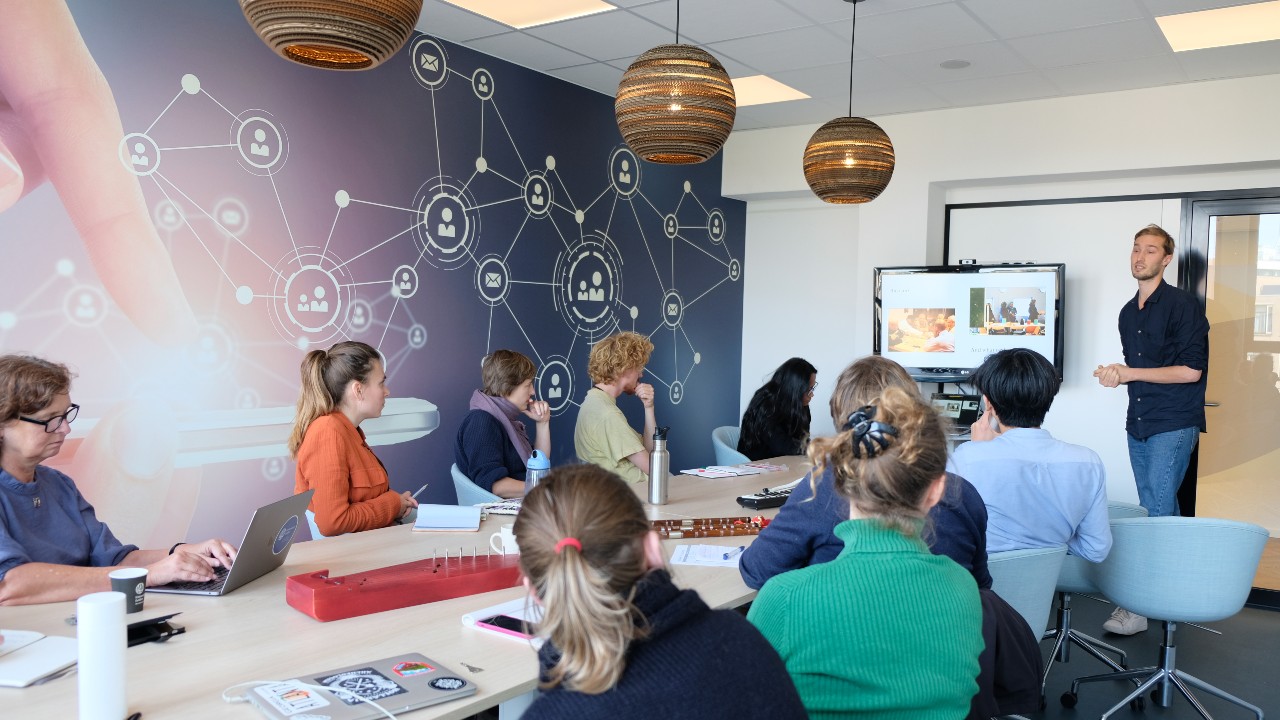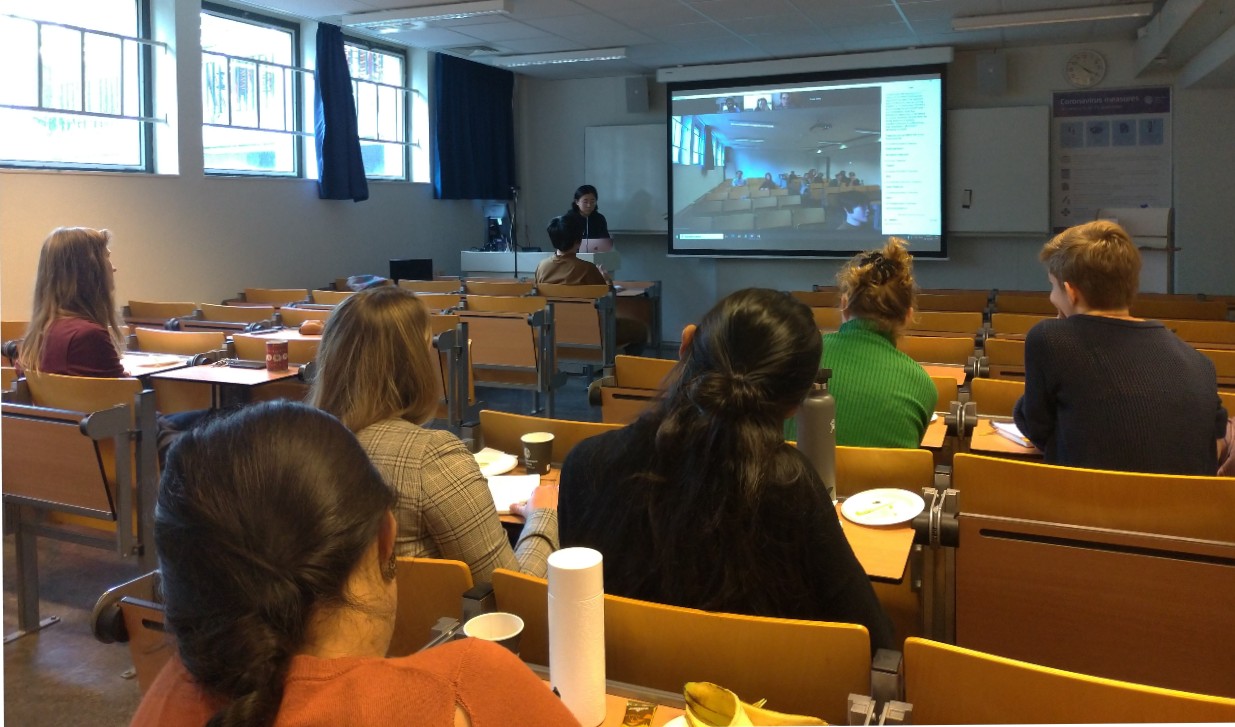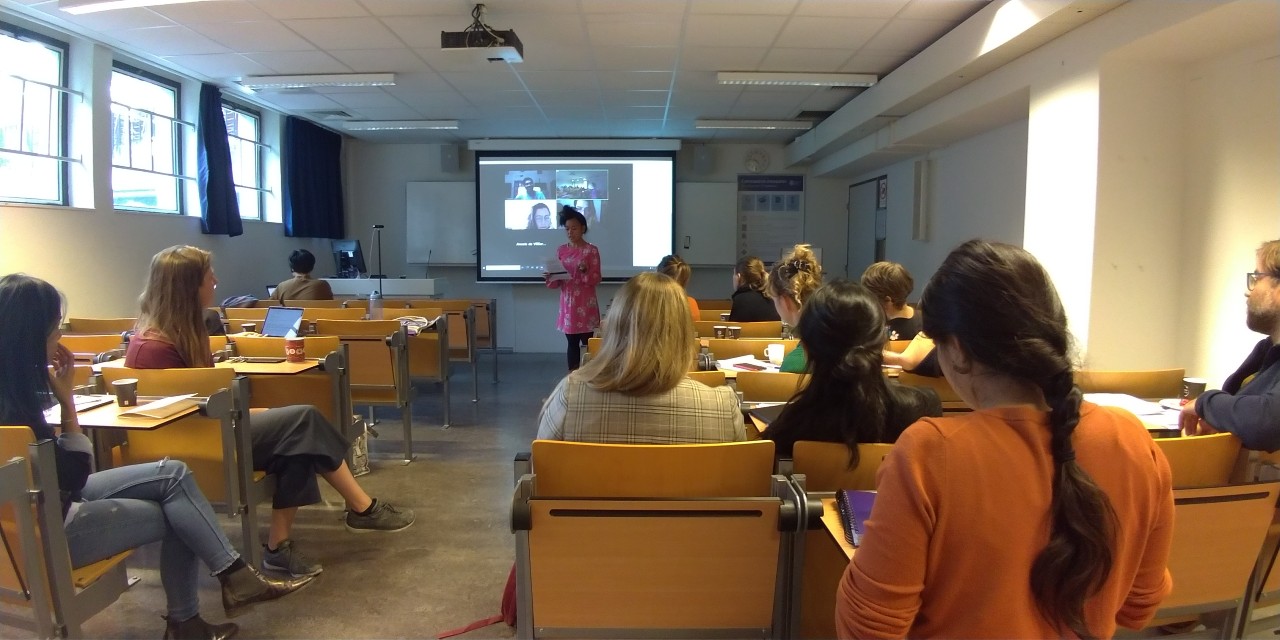
Recap of the 2021 Anthropoplogy CADS PhD Conference
After a long period of isolation under pandemic, the PhD candidates of the Institute of Cultural Anthropology and Development Sociology seized the opportunity to organize an in-person, on-site event: the CADS PhD Conference for 2021. With the theme "Young Scholars at the Intersection of Uncertainty, Possibility and Responsibility", the conference was dedicated to building connections between anthropology PhD candidates at Leiden University and other parts of the world. It began with a keynote address given by CADS alumna Dr. Coco Kanters, and was followed by four parallel sessions. Session 1A and 1B concentrated on thematizing uncertainty, while session 2A and 2B tackled issues in approaches, methods, and fieldwork. This recap is written by Fang-I Chu who organized the conference Young Scholars.
Cultivating a sense of togetherness
Coco Kanters' keynote speech revolved around her post-PhD realizations in light of the year of uncertainty faced by all under the pandemic. She said that we tend to imagine academic workers as singular entities, leading to PhD students and other early-career researchers feeling extremely lonely. She also noted how researchers tend to feel obligated to disengage from potentially energizing activities when under overwhelming pressure to perform. Such a tendency could be the result of fear: these activities might have a detrimental effect on one’s productivity. Regarding such a tendency, Coco argues that the most important products of one’s PhD trajectories are not limited to their dissertations but should also include various kinds of intellectual engagements. Coco defines such engagements—including exploring relational beings and professional identities in the universities—as building an 'institutional biography'. Building such a biography is also a way to show "concern with the different roles of the world we inhabit" and further develop the exaptation of one’s role with such exploration.
Coco provided several examples from her own experiences in relational academic work, and revealed that such practices had made her feel less alone and more visible in the web of institutions she was in. Furthermore, these network strengths also forged a sense of continuity and resilience that mitigated the sudden shock of the outside world.
Thematizing Uncertainty
CADS PhD candidates Siyun Wu, Wiebe Ruijtenberg, and Nikki Mulder presented at session 1A, which was chaired by Hanum Atikasari. Siyun discussed how singing—interactive and intimate in nature and an embodied engagement with other people—turned into Estonian musical heritage and became related to nationalism by focusing on Lauliupidu, a festival of traditional music in Estonia. Wiebe, adapting ideas from Mathijs Pelkmans, argued that instead of enacting clear criticisms and negotiations toward structural racism, Egyptian parents in Amsterdam are more often subtly holding uncertain attitudes about their children’s education in everyday lives. These uncertainties are embodied in suspecting that their children were subjected to unfair treatment rather than clearly indicating the racism they are facing. Nikki provides an intriguingly reversed idea of ghosts by discussing the temporal dynamics of uncertainties for death among Black, working-class communities in New Orleans. Here, the metaphor of "haunting" is no longer limited to a result from a certain traumatic past but also includes the outcomes of the present with uncertainties and the negative, violent, even fatal consequences that could be encountered in the future in chronic crisis.
Session 1B, chaired by Andrea Ragragio, had CADS PhD candidate Fang-I Chu, Federal University of São Carlos’ Fernanda de Gobbi, and Utrecht University’s Tamara Hernández presenting their work. Fang-I talked about the recent emergence of technology-heavy tourist activity, SCUBA diving, at her fieldsite of Green Island in Taiwan. Here, the diving coaches, or the people who presumably possess the skills of this new activity and make a living out passing on these skills and knowledge, results in a grey zone of uncertainty and possibility that challenges authority sets-ups represented by the State as well as by international diving certification systems. Fernanda shared her ethnographic work about loan-sharking, a research that straddles the "legal" and "illegal" spheres. Strikingly, she presents how well-integrated and important this "illegal" activity is in the social fabric of Sao Paulo, to the point that Fernanda has been able to study them for years for her Bachelor and Master. Tamara's presentation was about migrants in Chile from other neighboring South American countries. She emphasized the importance of trust when building and navigating networks, in consideration of her interlocutors' vulnerable positions. Meanwhile, she also shared situations brimming with distrust and where they are fostered and a fuller sense of belonging can emerge.
Issues in Approaches, Method and Fieldwork
Maria Vasile chaired Session 2A, in which two presenters, CADS’ Siyun Wu and Ancois de Villiers, focused on methodologies in anthropology. Siyun reflected on the different roles and positions anthropologists could occupy while in the field, in her case her ethnographic research on music heritage in Estonia. She invited the audience to think of learning, documenting, volunteering, and working with expertise as different stages of engagement, which tell something different about the type of relations and expectations that develop around the anthropologist's presence. The second presentation from Ancois, focused on her approach to transdisciplinary research in the field of landscape restoration. She focused on the theoretical premises of transdisciplinarity and its possible implications in terms of methodology and reflexivity. The session also included a fruitful discussion revolving around the themes of fieldwork relations and loyalties, and the work of advocacy together with research participants and possible practices and challenges of transdisciplinarity.
Session 2B had three presenters: Esther van de Camp from CADS, Isabela Vianna Pinho from Federal University of São Carlos, and Subhankar Dutta from the Indian Institute of Technology, with Wenlang Wang as chair. Esther started the session by sharing a part of her PhD research on small-scale gold mining in Eastern Region Uganda. She used Life Cycle Assessment (LCA), an industrial ecology method, and took an anthropological approach through her fieldwork and ethnography. And Esther has pointed out how LCA enabled assessing various gold mining impacts throughout the supply chain. Isabela’s research analyzed how money and violence are socially distributed in the illegal cocaine market. She focused on the journey of cocaine through the ports of Santos and Favela. She also mentioned how COVID brought challenges and possibilities, such as anonymity under the regulations of wearing masks. Subhankar concentrated on the performance, history, and cultural politics of the Gajan (Hook Swinging) Festival of Bengal. While doing fieldwork during the pandemic, he noticed the emergence of new vocabularies, folksongs, and modified performances. Within this process, he also reexamined his own identity as a researcher.
By Young Scholars, For Young Scholars
This conference also generated discussions that centered on the participants’ experiences as young scholars. For instance, how can supervisors help PhD candidates to build institutional biographies? Do the notions of preparedness (such as "doubt" and "haunting" in session 1A) point to a possible, different future? If so, what are the other things people do to change their future? How can anthropologists facilitate a sense of togetherness with research participants and possible practices and challenges of transciplinarity? How do the local state policy differences influence the phenomena that anthropologists observed? Through this conference and the benefit of hybrid meetings (our first try!), we can gather anthropologists worldwide and exchange our thoughts.
Acknowledgments
This recap can not be accomplished without the notes provided by our session chairs and volunteers: Hanum Atikasari, Andrea Ragragio, Maria Vasile, Wenlan Wang, and Irene Moretti.

